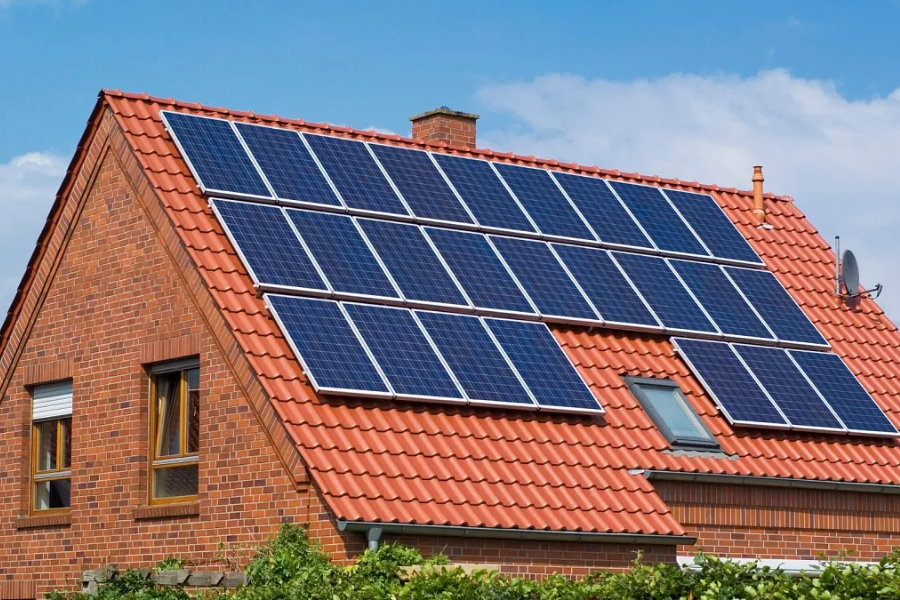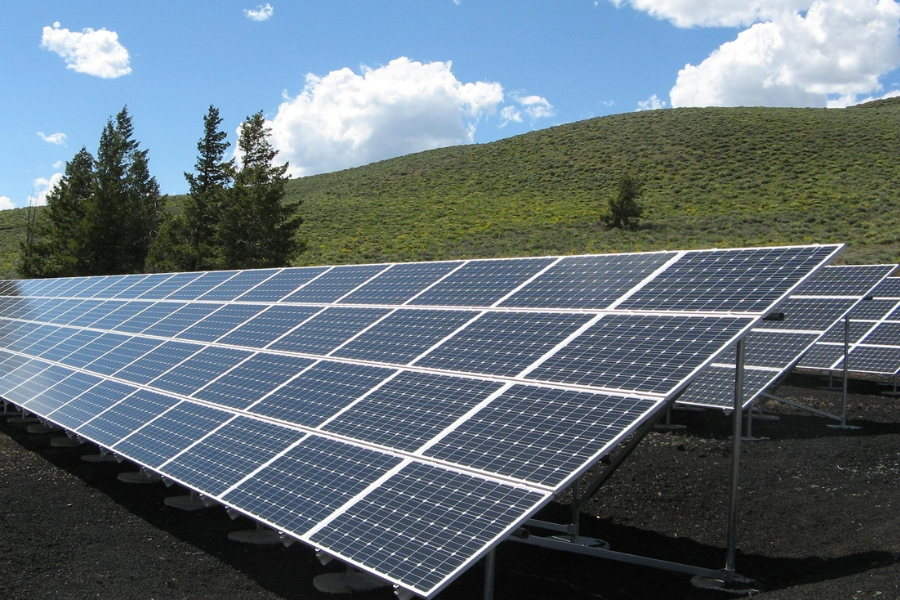Is Solar Energy Worth It? Benefits and Drawbacks of Solar Panels for Homes
As the world pivots towards cleaner and more sustainable energy options, solar power has emerged as a leading solution for environmentally conscious homeowners. Utilizing the sun’s immense energy, solar panels provide a way to generate electricity directly at home. However, before embarking on this eco-friendly journey, it’s essential to grasp the full spectrum of benefits and challenges that come with solar energy.
In this comprehensive guide, we’ll dive deep into the merits and potential drawbacks of installing solar panels in your home, equipping you with the knowledge needed to make an informed decision.
The Upsides of Solar Energy for Homeowners

1. Harnessing Clean and Sustainable Power
Minimize Environmental Impact
Solar energy is a powerhouse of clean energy that significantly reduces your household’s environmental footprint. Unlike fossil fuels, solar panels generate electricity without releasing harmful greenhouse gases. While the production and disposal of solar panels do have an environmental impact, it’s considerably lower compared to traditional energy sources. In fact, solar panels produce up to 20 times less carbon emissions than coal and 12 times less than natural gas.
Decreasing Dependency on Non-Renewable Resources
The shift to solar power lessens our reliance on finite and environmentally damaging fossil fuels. The majority of global energy production still hinges on these non-renewable resources, often imported from politically unstable regions. By adopting solar power, you contribute to reducing this dependence, promoting local energy production, and enhancing overall energy security.
2. Financial Benefits and Long-Term Savings
Cut Down on Utility Bills
One of the most compelling reasons to install solar panels is the potential for substantial savings on electricity bills. By generating your own electricity, you decrease your reliance on the grid, which can lead to significant reductions in your monthly power expenses. In some cases, solar panels can produce excess energy, which can be sold back to the grid through net metering or feed-in tariffs, further enhancing your savings.
Attractive Government Incentives
To encourage the adoption of renewable energy, many governments offer financial incentives, such as tax credits, rebates, and grants. These incentives can offset the initial cost of installation, making the transition to solar energy more affordable. In some regions, homeowners can recoup up to 30% of their solar installation costs through federal tax credits, making the financial case for solar even stronger.
Boosting Property Value
Installing solar panels can also increase the value of your home. Studies have shown that homes equipped with solar energy systems sell faster and at higher prices than those without. On average, solar panels can add a premium of 4-6% to your property’s value, making them a wise investment not just for energy savings, but also for enhancing your home’s marketability.
3. Achieving Energy Independence and Resilience
Shielding Against Rising Energy Costs
As energy prices continue to rise, homeowners who generate their own electricity with solar panels can lock in lower energy costs. Solar energy offers a hedge against future electricity price hikes, providing long-term financial stability. By generating your own power, you gain greater control over your energy budget, insulating yourself from the volatility of energy markets.
Maintaining Power During Outages
With the increasing frequency of extreme weather events, power outages have become more common. Homes equipped with solar panels and battery storage systems can continue to power essential appliances even when the grid goes down. This energy independence is particularly valuable in areas prone to blackouts, ensuring that your home remains functional and comfortable during emergencies.
Contributing to a Resilient Energy Grid
On a broader scale, solar panels contribute to a more resilient and decentralized energy grid. By generating electricity locally, you reduce the strain on the grid during peak demand periods, which can help prevent blackouts and improve grid stability. This decentralized approach to energy production benefits not just individual homeowners, but the entire community.
The Challenges of Solar Energy Installation
1. High Initial Costs
Upfront Investment
The initial cost of installing solar panels can be a significant barrier for many homeowners. Depending on the size of your system, the complexity of the installation, and your location, costs can range from $10,000 to $30,000 or more. This investment covers the solar panels themselves, inverters, mounting hardware, electrical work, and labor.
Mitigating Costs with Financing Options
While the upfront costs are high, many financing options can help make solar energy more accessible. Homeowners can take advantage of solar loans, leases, or power purchase agreements (PPAs), which allow you to spread the cost over time or pay a lower monthly fee for the electricity generated by the panels.
2. Long-Term Return on Investment
Payback Period Considerations
The time it takes to recoup your investment in solar panels, known as the payback period, varies based on factors like local electricity rates, available incentives, and your energy consumption. On average, the payback period ranges from 5 to 15 years. However, in regions with high electricity costs and generous incentives, the payback period can be shorter.
Evaluating Long-Term Savings
Beyond the payback period, solar panels continue to generate free electricity, leading to ongoing savings. Considering the lifespan of solar panels, typically 25 years or more, the long-term financial benefits can be substantial. Even after the initial investment is recovered, you’ll enjoy years of reduced or eliminated electricity bills.
3. Dependence on Weather and Sunlight
Seasonal and Weather-Related Fluctuations
Solar panels’ efficiency is directly tied to the amount of sunlight they receive. This means that energy production can vary throughout the year, with higher output during sunny summer months and lower output during the winter. Cloudy or rainy days can also reduce energy production, although modern solar technology has improved efficiency under less-than-ideal conditions.
Location and Roof Suitability
The effectiveness of solar panels also depends on your home’s location and roof orientation. Homes in regions with ample sunlight will benefit the most from solar energy, while those in areas with frequent cloud cover may see reduced benefits. Additionally, the orientation, tilt, and shading of your roof can impact the amount of sunlight your panels receive, affecting overall energy production.
4. Maintenance and Space Requirements
Maintenance Needs
Solar panels are generally low-maintenance, but they do require periodic cleaning and inspections to ensure optimal performance. Dust, dirt, leaves, and other debris can accumulate on the panels, reducing their efficiency. Regular cleaning and professional maintenance checks can help prolong the lifespan of your solar system and maximize energy output.
Space Considerations
Installing solar panels requires adequate space, typically on the roof. For optimal energy production, your roof should be structurally sound, properly oriented, and free from obstructions like trees or other buildings that could cast shadows. If your roof isn’t suitable, ground-mounted systems are an alternative, but they require additional land space.
Frequently Asked Questions About Solar Panels
1. How much do solar panels cost, and what factors influence the price?
The cost of solar panels varies based on the system size, location, and specific installation needs. Prices typically range from $10,000 to $30,000 before incentives. Factors influencing cost include the quality of solar panels, the complexity of the installation, and regional labor costs.
2. What is the lifespan of solar panels?
Most solar panels have a lifespan of 25 to 30 years. Over time, their efficiency may decrease slightly, but they will continue to generate electricity for decades with proper maintenance.
3. How does weather impact solar panel performance?
Solar panels are most effective in direct sunlight, but they can still produce electricity on cloudy or rainy days, albeit at a reduced rate. Seasonal variations also affect energy production, with higher output in summer and lower output in winter.
4. Can I go off-grid with solar panels?
Going completely off-grid requires a combination of solar panels and battery storage to ensure a reliable power supply during periods of low sunlight. While it’s possible, most homeowners prefer to remain connected to the grid to have a backup power source.
5. Are there any government incentives for installing solar panels?
Yes, many governments offer incentives like tax credits, rebates, and grants to encourage solar adoption. These incentives can significantly reduce the upfront cost of solar panel installation and shorten the payback period.
6. How do solar panels affect my home’s resale value?
Solar panels can increase your home’s resale value by 4-6%. Homes with solar panels often sell faster and at higher prices due to the appeal of lower energy bills and environmental benefits.
Summary
Installing solar panels is a significant investment that offers numerous benefits, including reducing your carbon footprint, lowering energy bills, and increasing your home’s value. Solar energy also provides greater energy independence and resilience, protecting you from rising utility costs and power outages. However, it’s important to consider the upfront costs, the time it takes to recoup your investment, and the impact of weather and location on energy production.
For many homeowners, the long-term financial savings and environmental benefits of solar energy outweigh the challenges. By carefully evaluating your home’s suitability for solar panels and taking advantage of available incentives, you can make an informed decision that aligns with your financial goals and commitment to sustainability.
Keep an eye for more news & updates on American Breaking!






